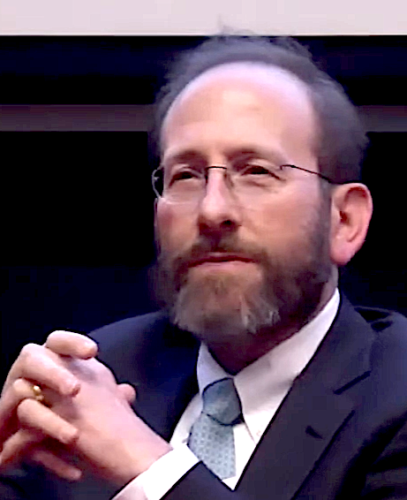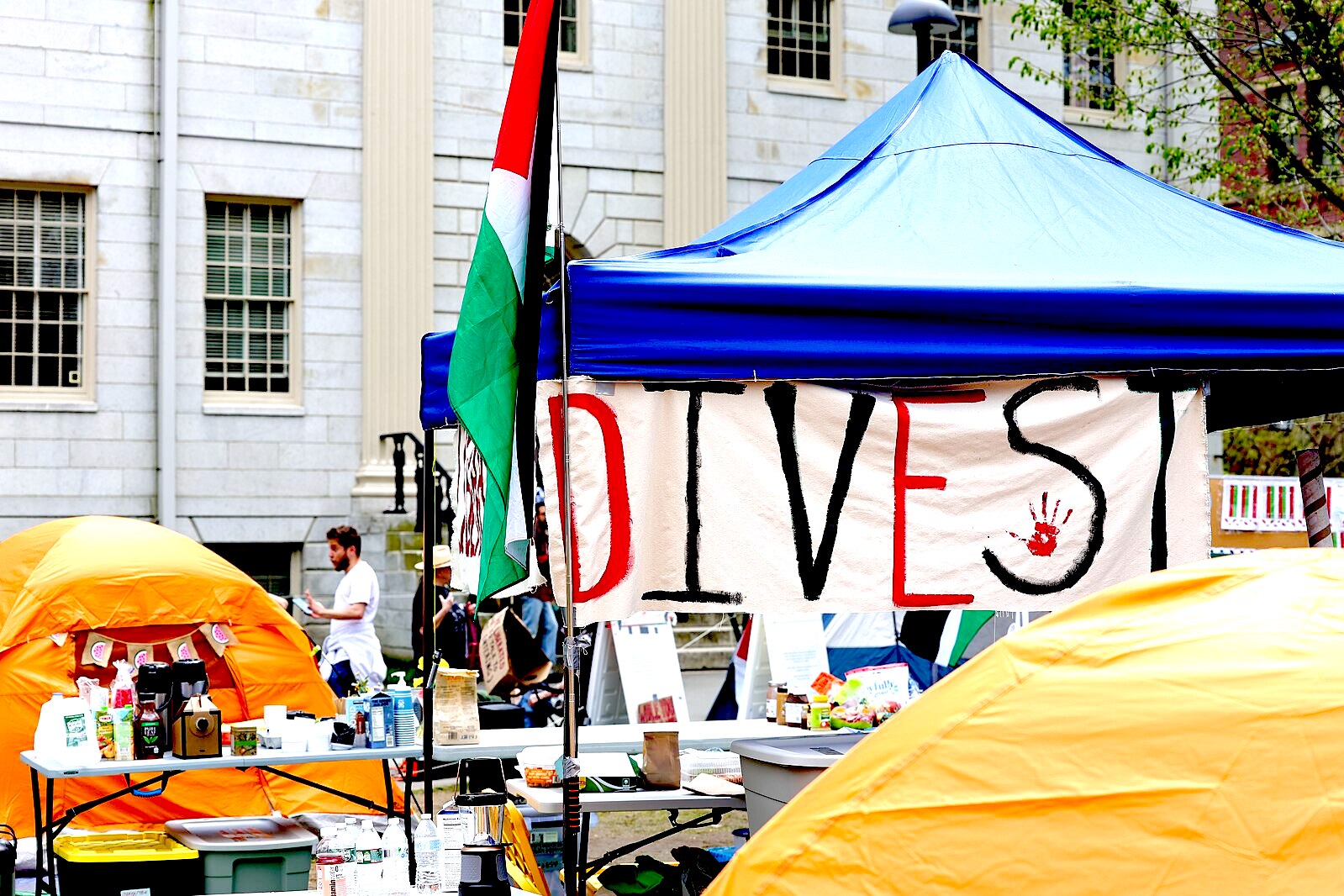Privileges. Privileges. Privileges.
That’s what drives politics and the smearing of independent media as purveyors of “disinformation” — to protect and preserve the privileges of the privileged. Read here...
In his 1971 opinion in the Pentagon Papers case, U.S. Supreme Court Justice Hugo Black wrote:
“In the First Amendment the Founding Fathers gave the free press the protection it must have to fulfill its essential role in our democracy. The press was to serve the governed, not the governors. The Government’s power to censor the press was abolished so that the press would remain forever free to censure the Government.”
One can hardly imagine anyone sitting on today’s U.S. Supreme Court writing such an opinion. Even more troubling is the news media having turned its back on its mission. Today they almost always serve the governors — not the governed.
The question is why.
Consolidation of media ownership has increased obedience of desperate journalists; entertainment divisions have taken over news departments; and careerist reporters and editors live vicariously through the power of those they cover, rejecting the press’ unique power to hold those officials to account.
It comes down ultimately to privileges. Men go to war to protect, preserve and further their privilege. Taxpayers’ money enhances the privileged through their wars, instead of spending public money on the public. And the corporate press vicariously cheers them on for a residual material betterment and increase in status.
Millions of lives erased in war for privilege.
The abdication of the mainstream media of their constitutional responsibility to serve the governed and not the governors has left a void filled since that Supreme Court decision by a new phenomenon: independent media published on a technology unknown in 1971.
Independent media, such as Consortium News, is committed to serving the governed and not the governors.
And because of that the governors and their media serving them want to destroy independent media, such as the recent, moronic hit piece against the Grayzone by a once serious newspaper, The Washington Post, and numerous moves (ProporNot, NewsGuard, Hamilton Dashboard, PayPal) against Consortium News.
If you are amongst the governed, please contribute whatever you can to CN today so we can continue to serve you instead of the governors. Thank you.
_______________________________________________________________________________________
Harvard’s Punitive
‘Palestine Exception’
Members of the university’s medical faculty call out the Harvard Corporation’s disproportionate punishment of 13 seniors for participating in the school’s Gaza solidarity encampment. Read here...
By Jennifer Brody, Alisa Khan and Lara Jirmanus
Common Dreams


 Across the country unrest continues to shake university campuses and commencement ceremonies. At Harvard, over 1,000 people walked out of graduation in a coordinated protest over its handling of students involved in the Palestine solidarity encampment.
Across the country unrest continues to shake university campuses and commencement ceremonies. At Harvard, over 1,000 people walked out of graduation in a coordinated protest over its handling of students involved in the Palestine solidarity encampment.
On May 14, after three weeks of peaceful protest, Harvard students dismantled their solidarity encampment based on assurances from Harvard President Alan Garber that disciplinary bodies would act “expeditiously under existing precedent,” with the goal that seniors would be able to graduate.
Garber led students (and faculty advisers) to trust that Harvard’s Administrative (“Ad”) Board, which enforces undergraduate academic regulations and conducts disciplinary processes, would be “guided by standard responses and considerations of equity.”
This, however, is not what happened.
The Ad Board placed 39 Harvard College students on multi-semester long probation and suspended five students. Consequently, 13 graduating seniors had their degrees delayed by multiple semesters. On May 20, the Faculty of Harvard College overwhelmingly voted to reverse the Ad Board’s decision and confer the 13 degrees.

Alan Garber in 2015. (HMS Center for Bioethics, Wikimedia Commons, CC BY 3.0)
However, on May 22, the day before graduation, the Harvard Corporation refused to let the 13 seniors graduate in a shocking rebuke to faculty governance.
These seniors may now lose post-graduate work opportunities and fellowships, including two of the 10 Harvard students awarded a Rhodes scholarship this year. These punitive actions will have lifelong consequences for students, many of whom are not from economically privileged backgrounds.
This disproportionate punishment exemplifies the “Palestine exception” by overturning decades of precedent in university disciplinary proceedings in prior student protest encampments — including many that were longer, larger, and more disruptive.
Far from responding in a “content-neutral” manner to Palestine solidarity protests, the university has shown that Palestinian lives — and the rights of those who advocate for them — are expendable.
Even before the student encampment, the ACLU of Massachusetts sent a letter to Harvard’s general counsel, warning that Harvard’s probation and suspension of the Palestine Solidarity Committee, the only recognized student Palestinian advocacy organization at Harvard College, “constitutes a breach of contract, violates Harvard’s duty to provide basic fairness in disciplinary proceedings, and may otherwise be unlawful because of its negative impact on free speech and associational rights.”
In the letter, the ACLU urged Harvard to “ensure that students expressing views that may be unpopular or controversial… are not disproportionately targeted due to their viewpoints.”
As physicians and faculty at Harvard Medical School, we have dedicated our careers to caring for vulnerable people. We teach our students the importance of standing up for the oppressed, that no life is disposable, and that we must use our privilege as physicians to contest conditions that devastate health and crush life chances.
While we each come from different faith traditions — Christian, Jewish and Muslim — we teach our own children the same thing. Do the right thing, no matter what others are doing. Speak out when others are being harmed.
We see clear connections between our healthcare worker colleagues in Palestine — who refuse to leave their patients’ sides, even as bombs fall and they become targets for detention and torture — and student protesters.

Harvard University Free Palestine Encampment on May 2. (Dariusz Jemielniak, Wikimedia Commons, CC BY 4.0)
On April 24, when students launched their encampment demanding an end to Harvard’s silence and complicity with genocide, students knew they risked their careers, livelihoods, and possibly even their physical safety.
Our students had already witnessed other university administrators, at University of Texas and Emerson College in Boston, call in police to violently remove encampments and arrest protesters.
Our students still made the principled decision to risk their education, careers and personal safety, as privileged students at Harvard, to demand justice for the people of Palestine. There were no universities left in Gaza, students reminded us. This collective act of solidarity was so inspiring, that each of us brought our own children to witness the encampment.
We wanted them to see and feel the love and principled commitment of young people in the encampment in the face of injustice. We wanted them to catch a glimpse of other worlds that might be possible. Worlds where all lives are held precious.
How will we tell our children of the unfair punishment students face at the hands of Harvard administrators for peacefully and bravely living their values, for daring to demand justice and an end to genocide? What should we now teach our students? That you may speak up, except for Palestine.
That Harvard resolved the Palestine solidarity encampment without police force has been framed as a victory for the Harvard community — a sign of its beneficence and tolerance.
But, if Harvard allows students to suffer the harsh and unfair consequences meted out by a body of 12 unelected members of Harvard Corporation — despite calls of over 500 Harvard faculty and staff and the vote of its own Harvard College Faculty — fundamental faith in the institution will disappear.
It would suggest that Harvard is not guided by its own principles of equity and fairness, but rather susceptible to corporate overreach and donor pressure. That too will have grave and long-term consequences that will long outlive the current students involved.
In the words of James Baldwin, “[We] do not believe what you say because [we] see what you do.”
Harvard could choose to repair broken trust. The first step is ending the Palestine exception and allowing our 13 seniors to graduate with degrees they earned.
Jennifer Brody, MD, MPH, is a primary care physician and assistant professor at Harvard Medical School.
Alisa Khan, MD, MPH, is an assistant professor of pediatrics at Harvard Medical School.
Lara Jirmanus, MD, MPH, is a primary care physician and clinical instructor at Harvard Medical School.
This article is from Common Dreams.
Views expressed in this article and may or may not reflect those of Consortium News.
Please Donate to the
Spring Fund Drive!
Members of the university’s medical faculty call out the Harvard Corporation’s disproportionate punishment of 13 seniors for participating in the school’s Gaza solidarity encampment. Read here...
By Jennifer Brody, Alisa Khan and Lara Jirmanus
Common Dreams


 Across the country unrest continues to shake university campuses and commencement ceremonies. At Harvard, over 1,000 people walked out of graduation in a coordinated protest over its handling of students involved in the Palestine solidarity encampment.
Across the country unrest continues to shake university campuses and commencement ceremonies. At Harvard, over 1,000 people walked out of graduation in a coordinated protest over its handling of students involved in the Palestine solidarity encampment.
On May 14, after three weeks of peaceful protest, Harvard students dismantled their solidarity encampment based on assurances from Harvard President Alan Garber that disciplinary bodies would act “expeditiously under existing precedent,” with the goal that seniors would be able to graduate.
Garber led students (and faculty advisers) to trust that Harvard’s Administrative (“Ad”) Board, which enforces undergraduate academic regulations and conducts disciplinary processes, would be “guided by standard responses and considerations of equity.”
This, however, is not what happened.
The Ad Board placed 39 Harvard College students on multi-semester long probation and suspended five students. Consequently, 13 graduating seniors had their degrees delayed by multiple semesters. On May 20, the Faculty of Harvard College overwhelmingly voted to reverse the Ad Board’s decision and confer the 13 degrees.

Alan Garber in 2015. (HMS Center for Bioethics, Wikimedia Commons, CC BY 3.0)
However, on May 22, the day before graduation, the Harvard Corporation refused to let the 13 seniors graduate in a shocking rebuke to faculty governance.
These seniors may now lose post-graduate work opportunities and fellowships, including two of the 10 Harvard students awarded a Rhodes scholarship this year. These punitive actions will have lifelong consequences for students, many of whom are not from economically privileged backgrounds.
This disproportionate punishment exemplifies the “Palestine exception” by overturning decades of precedent in university disciplinary proceedings in prior student protest encampments — including many that were longer, larger, and more disruptive.
Far from responding in a “content-neutral” manner to Palestine solidarity protests, the university has shown that Palestinian lives — and the rights of those who advocate for them — are expendable.
Even before the student encampment, the ACLU of Massachusetts sent a letter to Harvard’s general counsel, warning that Harvard’s probation and suspension of the Palestine Solidarity Committee, the only recognized student Palestinian advocacy organization at Harvard College, “constitutes a breach of contract, violates Harvard’s duty to provide basic fairness in disciplinary proceedings, and may otherwise be unlawful because of its negative impact on free speech and associational rights.”
In the letter, the ACLU urged Harvard to “ensure that students expressing views that may be unpopular or controversial… are not disproportionately targeted due to their viewpoints.”
As physicians and faculty at Harvard Medical School, we have dedicated our careers to caring for vulnerable people. We teach our students the importance of standing up for the oppressed, that no life is disposable, and that we must use our privilege as physicians to contest conditions that devastate health and crush life chances.
While we each come from different faith traditions — Christian, Jewish and Muslim — we teach our own children the same thing. Do the right thing, no matter what others are doing. Speak out when others are being harmed.
We see clear connections between our healthcare worker colleagues in Palestine — who refuse to leave their patients’ sides, even as bombs fall and they become targets for detention and torture — and student protesters.

Harvard University Free Palestine Encampment on May 2. (Dariusz Jemielniak, Wikimedia Commons, CC BY 4.0)
On April 24, when students launched their encampment demanding an end to Harvard’s silence and complicity with genocide, students knew they risked their careers, livelihoods, and possibly even their physical safety.
Our students had already witnessed other university administrators, at University of Texas and Emerson College in Boston, call in police to violently remove encampments and arrest protesters.
Our students still made the principled decision to risk their education, careers and personal safety, as privileged students at Harvard, to demand justice for the people of Palestine. There were no universities left in Gaza, students reminded us. This collective act of solidarity was so inspiring, that each of us brought our own children to witness the encampment.
We wanted them to see and feel the love and principled commitment of young people in the encampment in the face of injustice. We wanted them to catch a glimpse of other worlds that might be possible. Worlds where all lives are held precious.
How will we tell our children of the unfair punishment students face at the hands of Harvard administrators for peacefully and bravely living their values, for daring to demand justice and an end to genocide? What should we now teach our students? That you may speak up, except for Palestine.
That Harvard resolved the Palestine solidarity encampment without police force has been framed as a victory for the Harvard community — a sign of its beneficence and tolerance.
But, if Harvard allows students to suffer the harsh and unfair consequences meted out by a body of 12 unelected members of Harvard Corporation — despite calls of over 500 Harvard faculty and staff and the vote of its own Harvard College Faculty — fundamental faith in the institution will disappear.
It would suggest that Harvard is not guided by its own principles of equity and fairness, but rather susceptible to corporate overreach and donor pressure. That too will have grave and long-term consequences that will long outlive the current students involved.
In the words of James Baldwin, “[We] do not believe what you say because [we] see what you do.”
Harvard could choose to repair broken trust. The first step is ending the Palestine exception and allowing our 13 seniors to graduate with degrees they earned.
Jennifer Brody, MD, MPH, is a primary care physician and assistant professor at Harvard Medical School.
Alisa Khan, MD, MPH, is an assistant professor of pediatrics at Harvard Medical School.
Lara Jirmanus, MD, MPH, is a primary care physician and clinical instructor at Harvard Medical School.
This article is from Common Dreams.
Views expressed in this article and may or may not reflect those of Consortium News.
Please Donate to the
Spring Fund Drive!
_______________________________________________________________________________________
The D-Day of the Eastern Front
While Western Allies invaded Normandy on June 6, 1944, John Wight recalls the coordinated operation by the Red Army to break German resistance in Europe. Read here...
While Western Allies invaded Normandy on June 6, 1944, John Wight recalls the coordinated operation by the Red Army to break German resistance in Europe. Read here...
_______________________________________________________________________________________
You can make a donation to Consortium News by
credit card online or by mailing a check to
Consortium for Independent Journalism (CIJ)
2200 Wilson Blvd.
Suite 102-231
Arlington, VA 22201
CIJ is a 501-c-3 tax-exempt organization, so your donations may be tax-deductible in the United States. (You also can direct donations to us through your company's charitible-giving programs.)
2200 Wilson Blvd.
Suite 102-231
Arlington, VA 22201








No comments:
Post a Comment
Note: Only a member of this blog may post a comment.